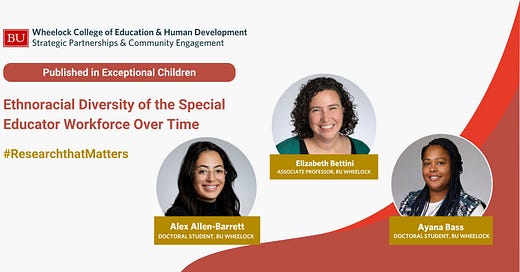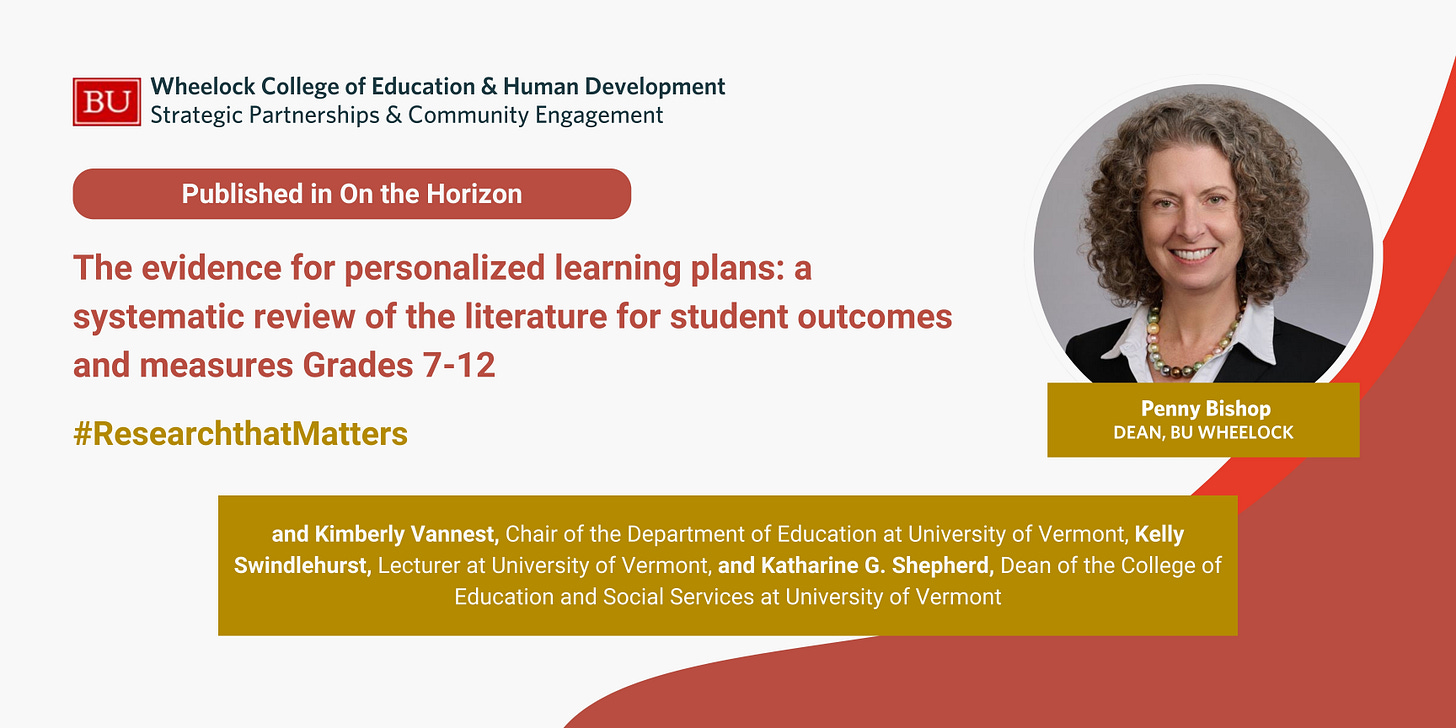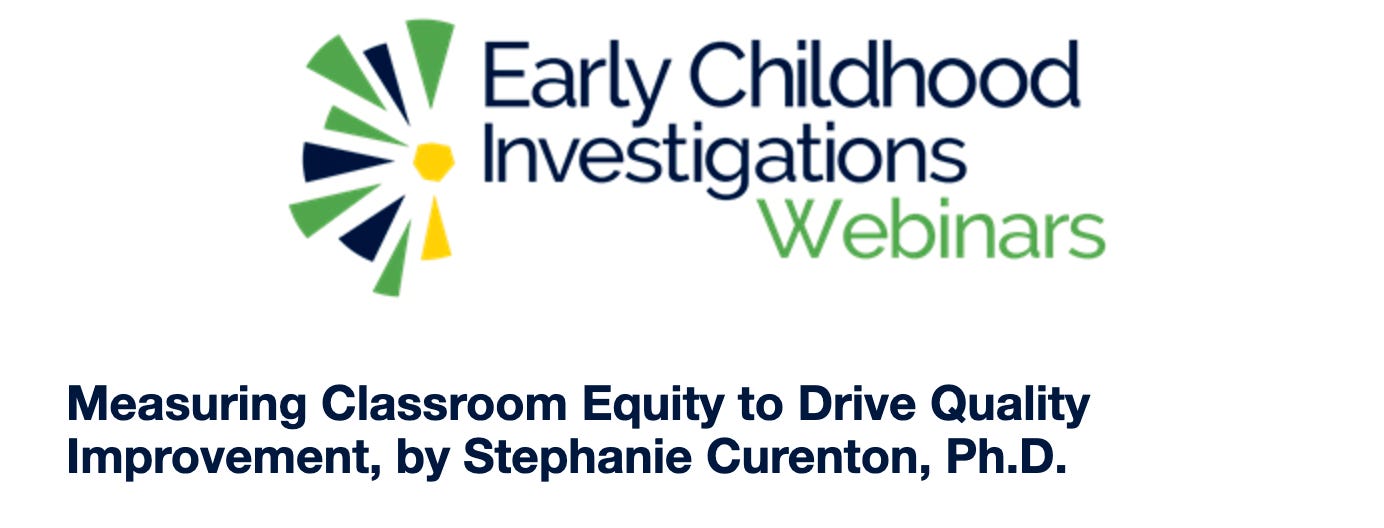Welcome to this week’s recap! This week we share announcements, highlight news mentions, and share recently published research.
New Announcements
Happy New Year from The SPACE Office! As we enter 2025, we continue our commitment to community-engaged research and collaboration, working with partners to drive systemic transformation in education and human development through authentic, sustainable partnerships.
In the News
Higher Ed Changes Loom Under a Second Trump Administration, Governing Magazine, (Assoc. Dean Mary Churchill quoted), December 5, 2024
Research That Matters
Personalized Learning Plans: The evidence for personalized learning plans: a systematic review of the literature for student outcomes and measures Grades 7-12 (co-authored by Dean Penny Bishop)
Personalized Learning Plans (PLPs) are increasingly integral to proficiency-based learning reforms and flexible graduation pathways. Yet, despite growing theoretical and implementation literature, evidence of student outcomes remains difficult to identify. This paper reports on a systematic literature review (2019–2023) that analyzed 330 documents and found that fewer than five met the inclusion criteria for measures of student outcomes. The authors stress the need for more research on student outcomes and highlight both strengths and gaps in existing literature.
Language Education: Are we language teacher educators? Using linguistic cartography to support teacher identity development around language (co-authored by Assoc. Professor Christina Dobbs)
This article is written by three U.S. university teacher educators who prepare teacher candidates (TCs) to work with culturally and linguistically diverse learners (CLDLs) across various disciplines. The authors argue that all TCs are inherently language teachers, as they teach CLDLs and use language to convey content. Using Self-Study of Teacher Education Practices (S-STEP), the authors examine how a language mapping activity, linguistic cartography, designed to help TCs connect personal idiolects with identity, has influenced their own identities and development as teacher educators.
Special Educator Workforce: Ethnoracial Diversity of the Special Educator Workforce Over Time (co-authored by Assoc. Professor Elizabeth Bettini, doctoral student Ayana Bass, and doctoral student Alex Allen-Barrett)
Teachers of color play a crucial role in improving educational experiences and outcomes for students of color. However, over 80% of special education teachers (SETs) in U.S. public schools are white. This study examined how the ethnoracial diversity of the SET workforce changed from 2012 to 2021, in relation to the growing ethnoracial diversity of students with disabilities. Researchers found that the growth in the number of SETs of color nationally is insufficient to keep pace with the increasing population of students of color with disabilities. The authors argue that race-evasive recruitment and retention initiatives are inadequate. Instead, coordinated, race-conscious policies and practices are needed across policy, teacher education, and in-service school districts to foster a SET workforce that reflects the student population.
Upcoming Events
January 8th - Early Childhood Webinar - Stephanie Curenton, Professor at BU Wheelock and creator of the Assessing Classroom Sociocultural Equity Scale (ACSES), will present at an Early Childhood Investigations Webinar. This session will explore how the ACSES framework helps educators evaluate and enhance equity in early childhood classrooms, creating more inclusive and supportive learning environments. Register here to gain practical tools and insights.
📅 Date: January 8, 2025
🕒 Time: 2:00–3:30 PM EST








